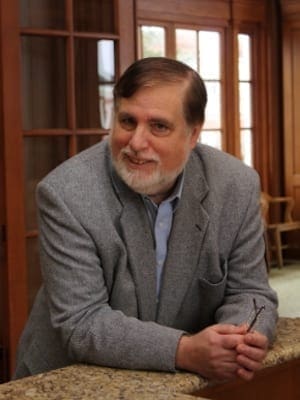Currently, there is a searching debate over the issue of whether universities that are religious in orientation and have a statement of religious beliefs and values can provide a satisfactory environment of academic freedom.
This is not new territory for Baptist Christians, who have long advocated freedom of conscience and separation of the interests of church and state.
Born in the crucible of the early 17th century when an English monarch was engaged in efforts to enforce religious conformity, Baptists struck a note for full religious liberty, a position that reached to other types of Christians, non-Christians and persons of no religious orientation whatsoever. Baptists were on the right side of history as the Act of Toleration (1689), various statements on religious freedom and the Universal Declaration of Human Rights (1948) would demonstrate.
Baptists in Canada, while a minority, have made significant contributions to higher education across the country. The Baptist College in Montreal, Acadia University, McMaster University and Brandon University and 32 other schools all share Baptist roots. Indeed, it was a central Canadian Baptist minister and educator, Robert A. Fyfe, who defined religious voluntarism at the crucial midpoint of the 19th century in Upper Canada. Canadian Baptists have influenced schools on virtually every continent. The Baptist case for personal and professional freedom in the context of religious values is again worth debating.
Academic freedom is a revered principle of higher education, along with collegiality and tenure. It pertains to the liberty that one has to pursue knowledge wherever the pursuit of truth leads (the research meaning) and to speak in complete freedom on matters relating to one’s discipline (the pedagogical meaning).
Institutions that are sponsored by religious groups or that have an independent religious character need to state unequivocally that these freedoms are part of their institutional mission and purpose without qualification.
On the other hand, that an institution would be guided by religious and ethical principles in the conduct of its governance, by the behavior of its faculty and students, and by the objectives of the learning process is not unlike the statements that non-religious institutions (public and private) make about integrity, trust, confidentiality, transparency, honesty and accountability. The ends are essentially the same: that a high standard is raised in the life and work of those engaged in the public trust for advanced learning and the maintenance of the public good.
It is a culturally retrograde step to disallow any person with religious values or particular philosophic views from engaging in the educational enterprise. In a truly pluralistic society, religious values are as legitimate as any contribution to public discourse.
Baptists have found ways to honor both academic freedom and religious values. Baptist theologians and ethicists have made strong statements regarding academic freedom. Baptists engage in the wide-ranging discussions of human rights. Leading Baptist institutions also affirm their religious principles through positive, non-coercive affirmations that are guides to community life and institutional governance. Baptist institutions are open to various ethnic groups and national origins and both sexes; they do not discriminate on the basis of economic or social status. Baptists see no contradiction between freedom and responsibility.
Baptist Christians are one of many voices in the current debate in Canada. Our important contribution always devolves to freedom, dignity and human rights as inherently religious convictions. There is no inherent contradiction between religious values and academic freedom.
William H. Brackney is the Millard R. Cherry Distinguished Professor of Christian Theology and Ethics at Acadia University and Acadia Divinity College in Nova Scotia. This column first appeared on the blog Holy Post and is used with the author’s permission.

